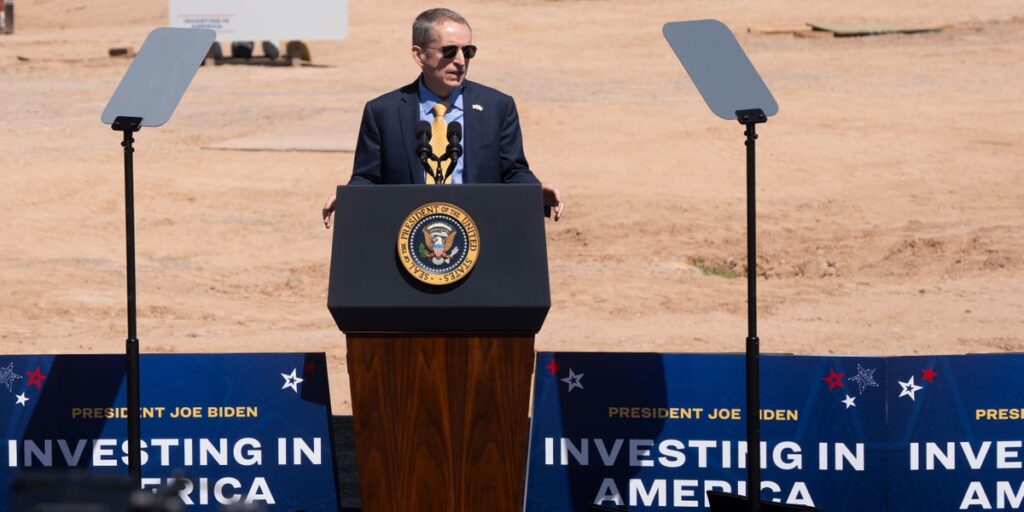- The CHIPS and Science Act, offering over $30 billion in incentives, spurred semiconductor lobbying.
- Nvidia, TSMC, and Intel are enhancing government relations amid evolving trade policies.
- Most heads of government relations and lobbyists are part of the “revolving door.”
In 2022, Nvidia spent $90,000 on lobbying in Washington. In 2023, that number quintupled to more than $500,000.
While Big Tech companies have spent millions lobbying in Washington, DC, on issues such as AI and antitrust regulation, the CHIPS and Science Act, which is set to give out more than $30 billion in incentives funding to chip companies, kicked things into high gear for the semiconductor industry. The Department of Commerce said in November that Intel will receive about $7.9 billion in federal grants.
American manufacturers like Intel and Micron boosted their lobbying funding, while foreign companies like TSMC assembled their DC-based government relations teams in response. And while chip designers like Nvidia and AMD are not direct CHIPS Act funding recipients, they hold an interest in shifting manufacturing dependence on TSMC in case of any geopolitical conflicts in Taiwan.
Business Insider reviewed lobbying public disclosure reports associated with various chip companies and focused on the top listed lobbyists and governmental affairs departments. Most members were part of the “revolving door,” switching from staffing on the hill, campaigns, and other agencies to the private sector.
“Given that more government policies are impacting the chip industry relative to several years ago–tariffs, incentives, tax policies, etc.— it isn’t surprising that the chip industry is focusing more on this,” said Chris Miller, the author of the book “Chip War: The Fight for the World’s Most Critical Technology.”
President Joe Biden’s administration has scrambled to finalize CHIPS Act funding since the election of Donald Trump, who advocated for higher tariffs and attacked the bipartisan legislation in an interview with Joe Rogan in October.
A Department of Commerce spokesperson said in November that the department has awarded over $10 billion so far and expects to allocate all incentives funds this year.
Companies will push to finalize their CHIPS Act grants in the short term and try to build more connections with Republican policymakers in the long term, said Lori Yue, an associate management professor at Columbia Business School who studies corporate political strategy.
“Government change would definitely affect lobbying as the executive branch has a lot of power in terms of regulation,” she said.
The Department of Commerce spokesperson said that the due diligence and negotiation processes for finalizing funding are “bespoke” for each applicant. The spokesperson declined to comment on chip lobbying efforts and the specifics of individual CHIPS applicants.
Yue said that hiring lobbyists depends on what expertise and networks they already have.
“For example, they have worked on certain governmental issues before. They really know every single regulatory procedure on this issue. That person can be very valuable. Besides what they know is who they know: how can this person bring the company’s perspective to the policymakers and connect to the person in power?” said Yue.
Trump nominated Howard Lutnick, CEO of investment bank Cantor Fitzgerald and an advocate for tariffs, as his commerce secretary.
Read the full article here
















